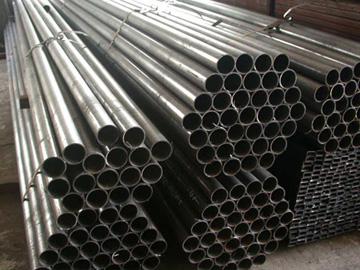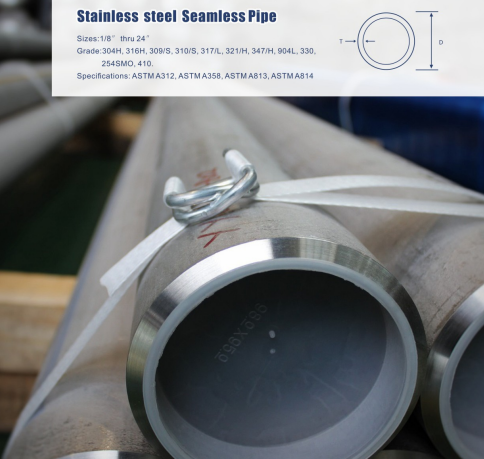Stainless steel products are widely used in numerous industries and applications, due to their excellent properties and features. Today, we will discuss seamless stainless steel pipe and ERW stainless steel pipe and the difference between these two types of products.
There are some differences between ERW stainless steel pipe and seamless stainless steel pipe. ERW pipeline is a short form of resistance welding. No matter what the pressure, it is used to transport liquids, such as fuel, gas, etc. It plays an important role in transportation pipelines worldwide. At the same time, it is a seamless steel pipe. Square and rectangular steel pipes, without joints and hollow cross-sections, are used for transporting liquids due to their outstanding high bending strength and torsion strength, as well as for the manufacture of structural components and mechanical parts. All in all, the use of ERW pipes and seamless steel pipes is very different.

1. Raw material difference
SS Seamless pipes are manufactured out of round steel billets and SS ERW pipes are made out of hot-rolled coils. Although both the raw materials are entirely different, it should be noted that the quality of end product – pipes, entirely depends upon both factors – quality control during the manufacturing process and the initial condition and quality of raw materials. Both these pipes are manufactured in different stainless steel grades but the most common are stainless steel 304 Pipes
2. Manufacturing process difference
Round steel billets are heated and pushed over the piercing rod until the hollow shape is achieved. Subsequently, their length and thickness are controlled through extrusion techniques. The manufacturing process is completely different in the case of the production of ERW pipes. The coils are bent axially and the converging edges are welded throughout their length by electric resistance welding.
3. Size difference
Stainless Steel Seamless Pipes are completely finished in their assembly line and are fabricated up to 26 inches of outer diameter. On the other hand, even the most advanced Steel Company deploying ERW techniques, go only up to 24 inches of outer diameter.
4. Welding process difference
As seamless pipes are extruded, they do not have any sort of joint either in the axial or radial direction. On the other hand, ERW pipes are made out by bending coils along their central axis and hence they are welded throughout their length.
5. Application difference
Generally, seamless pipes are used for applications that demand high pressure and ERW pipes are utilized for the services of low and medium pressure areas.
Also, considering the inherent safety features of seamless pipes, they are widely used in applications of oil and gas, refineries, and other chemical industries, where personnel and plant safety needs to be ensured through zero leakage policies. That being said, well-manufactured ERW pipes under strict quality control can also be put into similar services other than the routine ones like water transportation, scaffolding, and fencing.
6. Finished product difference
It is a known fact that the internal finish of ERW pipes is always controlled through good quality control techniques, and hence they are always superior to seamless pipes.
How to Identify Seamless or ERW Stainless Steel pipes?
To identify that a pipe supplied is seamless or ERW, Simply read the stencil on the side of the pipe
If it is ASTM A53, Type S means seamless.
Type F is furnace but welded,
Type E is Electrical resist welded.
Thats how. It is the easiest way to identify wether pipe is seamless or ERW.
Tips: ASTM A53 Grade B is more popular than other grades. These pipes can be bare pipes without any coating, or it may be Hot-Dipped or Zinc-Coated and manufactured by Welding or by a Seamless manufacturing process. In Oil and Gas, A53 grade pipes are used in the structural and non-critical applications.

